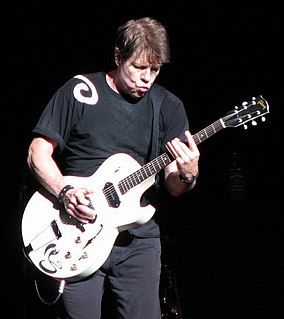A Quote by George Bernard Shaw
All genuinely intellectual work is humorous.
Quote Topics
Related Quotes
In literary representation, the distinction between the genuinely erotic and the licentious is a distinction not of subject-matter, but of perspective. The genuinely erotic work is one which invites the reader to re-create in imagination the first-person point of view of someone party to an erotic encounter. The pornographic work retains as a rule the third-person perspective of the voyeuristic observer.
'Everwood' I think provides a unique feeling, an emotional experience. And other shows on TV don't have the acting talent to do that. Each one of our actors can do a serious scene and a humorous scene, and can do it all within the same sequence. They can go from a heartbreaking moment to a humorous moment.
You're trying to make the language work, and your subconscious is being allowed to make the deeper, more profound connections. It's much better than going at it all frontally. But you can't conjure it in an intellectual way; it has to come out of another engagement, a more intuitive engagement. Revision is where the intellectual, analytical work happens. At least for me.






































